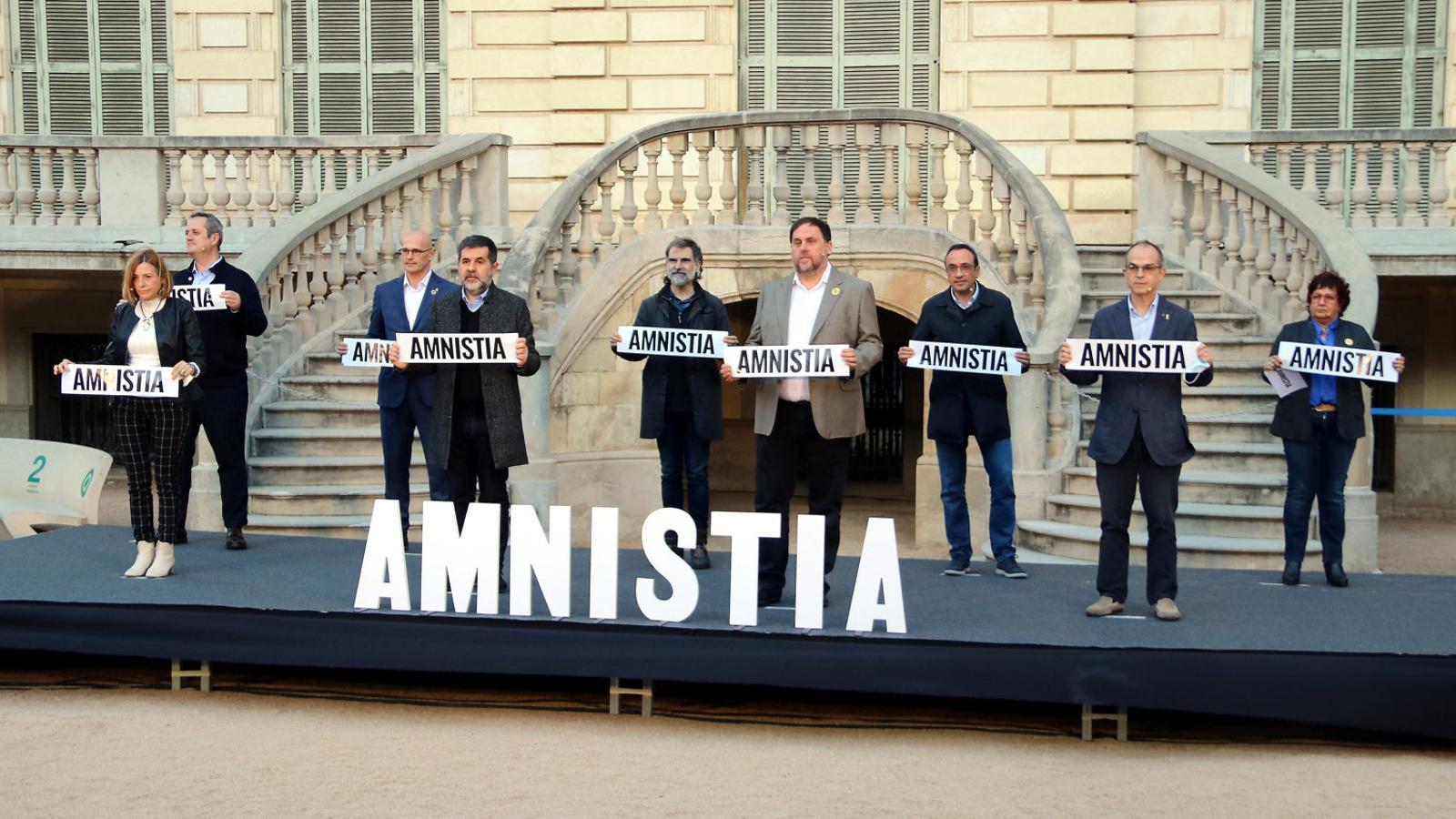Two Constitutional Court judges believe Independence bid ruling "disproportionate"
They doubt that the 20-S and 1-O endangered the "democratic system".


BarcelonaLast week, the plenary of the Constitutional Court dismissed Jordi Turull's appeal against the Independe bid ruling, who will become the first Catalan political prisoner to appeal his conviction in Strasbourg. The decision, however, was not taken unanimously: magistrates Juan Antonio Xiol and Maria Luisa Balaguer wrote a dissenting opinion. They considered that the high court had to consider the appeal of the ex Minister because the sentence violated a series of rights, such as the principle of the legality of punishment, the right to personal freedom, ideological freedom and freedom of assembly. In the 26-page brief that was made public today, the two judges consider the sentence imposed on Turull "disproportionate", although they do not question the "criminal" relevance of the facts that were judged. However, they question whether they were constitutive of sedition, which is the crime for which he was convicted by the Supreme Court.
Thus, Xiol and Balaguer question that both 20-S and 1-O can be considered two "tumultuous uprisings" and believe that there are "serious doubts" that either of the two events put "the Spanish democratic system" at risk. Thus, on the mobilisation in front of the headquarters of the Department of Economy in 2017, they argue that they are facts that are "protected by the exercise of the right of assembly", despite eventual "excesses by some demonstrators". On the 2017 referendum, they argue that "the incidents that occurred, although they were important, were isolated in nature", which is why they argue that "it is not easy" to attribute "tumultuous elements" to them. In addition, the two magistrates recall that the will of the pro-independence leaders was "to pressure the Spanish government to negotiate a referendum", not to unilaterally declare independence.
Following this thread, they consider that both 20-S and 1-O could have fit into the crimes of disobedience or public disorder and that, were this not the case, the principle of proportionality should have been applied when imposing a sentence for sedition. They recall that Turull joined the Government later (in July 2017) and, even so, the same penalty was imposed on him as on the rest. In addition, they defend that in his case, for example, he would not have participated in the call for the demonstration on 20-S. That is, they should have assessed the facts in which each of the defendants were involved to apply a proportional penalty.
The two magistrates also claim it would have been possible to "formulate a different judgement" on the proportionality of the penalties and that was more in line with "the principle of legality", as happens "in the common legal culture" of European Union countries. "A vision of the principle of legality that finds its optimal articulation in the preservation of the rule of law," they argue. This preservation of the rule of law, they believe, could have been better achieved by protecting and guaranteeing the "fundamental rights even of those who do not share the same vision of respect for the rule of law".
Majority opinion
The arguments of the two magistrates contrast with the majority opinion in the Court, which fully endorses the verdict of the Supreme Court. In the sentence, written by the magistrate Pedro González-Trevijano, they assure that Turull's sentence is not disproportionate and that it has not had a "discouraging effect" on his fundamental rights, because they consider that he has not been condemned for having exercised them. In this sense, the high court reaffirms that Jordi Turull had an active participation in "the promotion of the referendum of self-determination" of October 1 and in his "stubborn opposition" as a member of the Government to all the warnings of the Constitutional Court. In the sentence, in addition, they defend that the crime of sedition is not described in a "vague" way and that, therefore, does not violate the principle of law which requires infractions to be described clearly. The high court also rejects some magistrates' ideological bias, as alleged by Turull's defence and believes his right to defend himself was upheld..
